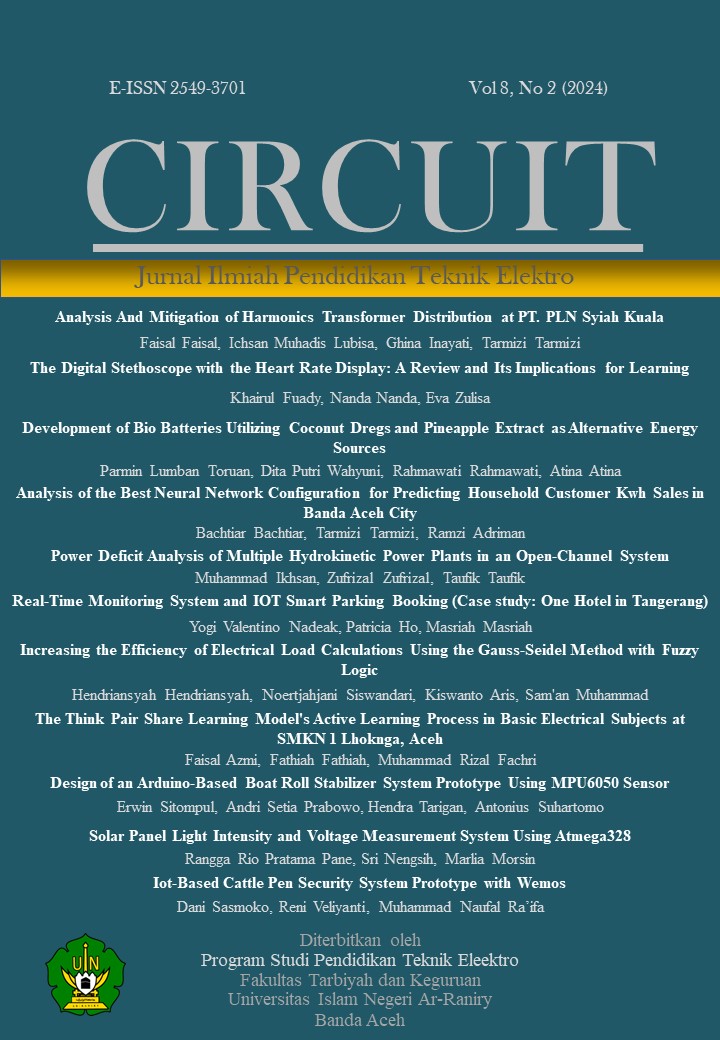Design of an Arduino-Based Boat Roll Stabilizer System Prototype Using MPU6050 Sensor
DOI:
https://doi.org/10.22373/crc.v8i2.23124Keywords:
Boat Stabilizer, Digital Control, MPU6050, Roll AngleAbstract
In the midst of lakes or oceans, boats used for recreational fishing that are left immobile are more vulnerable to rolling waves or wind. This study was conducted to develop a prototype of the boat's stabilization system and control scheme in order to address the stability issue with the craft. Based on the prototype concept, a small boat was constructed with a control loop that included two DC motors, a motor driver, a gyroscope MPU6050, and an Arduino Uno microcontroller. A prototype stabilizer was used to evaluate two different sets of control parameters, and in both situations the stabilizer was able to provide the boat with critical interference before bringing it back to a vertical position. PWM 1 level change rate (Pulse-Width-Modulation) yields better results than 4 level change rates (PWM), with faster stabilization achievement. (1,12 seconds versus 2,46 second). In the development of the prototype, it is necessary to test the implementation of the system on the boat to the actual size.
Downloads
Published
Issue
Section
License
Authors who publish in CIRCUIT: Jurnal Ilmiah Pendidikan Teknik Elektro agree to the following terms:
- Authors retain copyright and grant the journal right of first publication with the work licensed under a Creative Commons Attribution-ShareAlike 4.0 International License (CC BY-SA 4.0) that allows others to share and adapt the work with an acknowledgement of the authorship and initial publication in this journal
- Authors are able to enter into separate, additional contractual arrangements for the non-exclusive distribution of the journal's published version of the work (e.g., post it to an institutional repository or publish it in a book), with an acknowledgment of its initial publication in this journal.
- Authors are permitted and encouraged to post their work online (e.g., in institutional repositories or on their website) prior to and during the submission process, as it can lead to productive exchanges, as well as earlier and greater citation of published work. (See The Effect of Open Acces)

